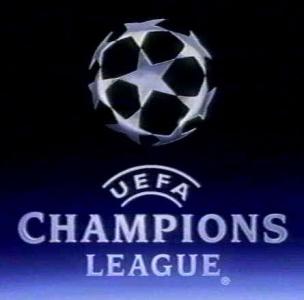Five Things we learned from Barcelona’s 3-1 trouncing of Manchester United:
1. It’s definitely now time for Sir Alex Ferguson to trust his younger players
Paul Wilson has already argued this in The Guardian, and he couldn’t be more right. How is it possible that a club of United’s stature and resources can roll up in the Champions’ League final against the best passing team in the world – some argue the best EVER – and stick a 37-year-old ex-winger into the centre of midfield?
Naní and Anderson are two fabulously talented young players who, when they signed three years ago, were heralded as the ‘future’ of the club. Naní has proven his quality over the past eighteen months but the more workmanlike Antonio Valencia was preferred on the right; Anderson has been forced to play a bit-part role, doing a different job almost every time he plays, but his muscularity and energy would have been perfect just in front of the United back four.
Sir Alex happily sent out Javier Hernández and Fábio da Silva, so he clearly doesn’t have a problem with using younger players; he just seems to place an excessive level of trust in his older ones.
2. Barcelona will be remembered as the best ever
Football ‘critics’ are failed historians. That’s the only explanation I can find for why columnists, pundits, commentators and analysts insist on favouring sweeping, romanticised narratives over the equally fascinating but much more complex series of facts which make up reality.
United conceded the midfield to Barcelona before the game even began, all of Barcelona’s goals were preventable and Messi’s in particular reflects very badly indeed on Edwin van der Sar. The Dutch ‘keeper’s fabulous career ended with a horrible misjudgement of Lionel Messi’s shot during a Final to forget, but the critics can’t have that. It’s much easier to paint a picture of Messi’s genius.
That said, Barcelona’s football was utterly fabulous and Villa’s finish was an absolute gem. Once you have a platform, you can say anything and history will note you down. Barca built their own platform with a wonderful approach to the technical aspect of the game during an era in which physical fitness and tactical caution have threatened to overwhelm creativity and spontaneity in the game. It is our nostalgic longing for the craft of yesteryear which elevates Barca’s status, but then Barca can do what nobody else from the current generation can.
3. Luis Antonio Valencia is not THAT good
One of the most bizarre phenomena in English football, this. Good player though the Ecuadorian is, he has received comparisons with Sir Stanley Matthews and even Garrincha which seem absolutely prepostrous. After impressing at Wigan, Valencia moved to Manchester United and was apparently asked to fill Cristiano Ronaldo’s role; the truth is, the team shifted its focus and Valencia was able to rack up a decent assists tally before injury forced him out for most of this season. New incumbent Naní had impressed in his position, but as soon as he returned, Valencia was straight back in the team, and nobody complained.
Last night, Valencia put in a decent shift in support of full-back Fábio, but with the ball at his feet he never showed anything like the guile required to unlock defences at this level. Supposedly, his brilliance comes from the fact that rather than ‘messing around’, he gets straight down that line and gets balls in the box. He is ‘effective’; just not quite as effective as the ‘ineffective’ Naní, who scored and assisted more this season than Valencia did in that golden year where he so impressed United fans and critics alike.
A ‘decent shift’ playing for a good side is enough to rack up some solid stats in the Premier League; it’s not quote Garrincha though, and it certainly isn’t enough against the likes of Barcelona.
4. Wayne Rooney can produce in the ‘big’ games
A fact which will go largely unnoticed amid the furore over Barcelona’s greatness, but Wayne Rooney had an excellent game last night. Had United been able to compete in midfield, his excellent goal would have been remembered as being much more important than it actually was; instigating a move on the right touchline, he exchanged two passes on his way through the Barcelona defence before placing an emphatic shot past Valdés. He was also very good at linking up with the midfield and displayed a maturity we have rarely seen from him.
5. There are more important things than football
Eric Abidal played seventy days after undergoing an operation to remove a tumour from his liver. Fittingly, the Frenchman was the man who lifted the trophy. A touching moment.
Add Sportslens to your Google News Feed!
